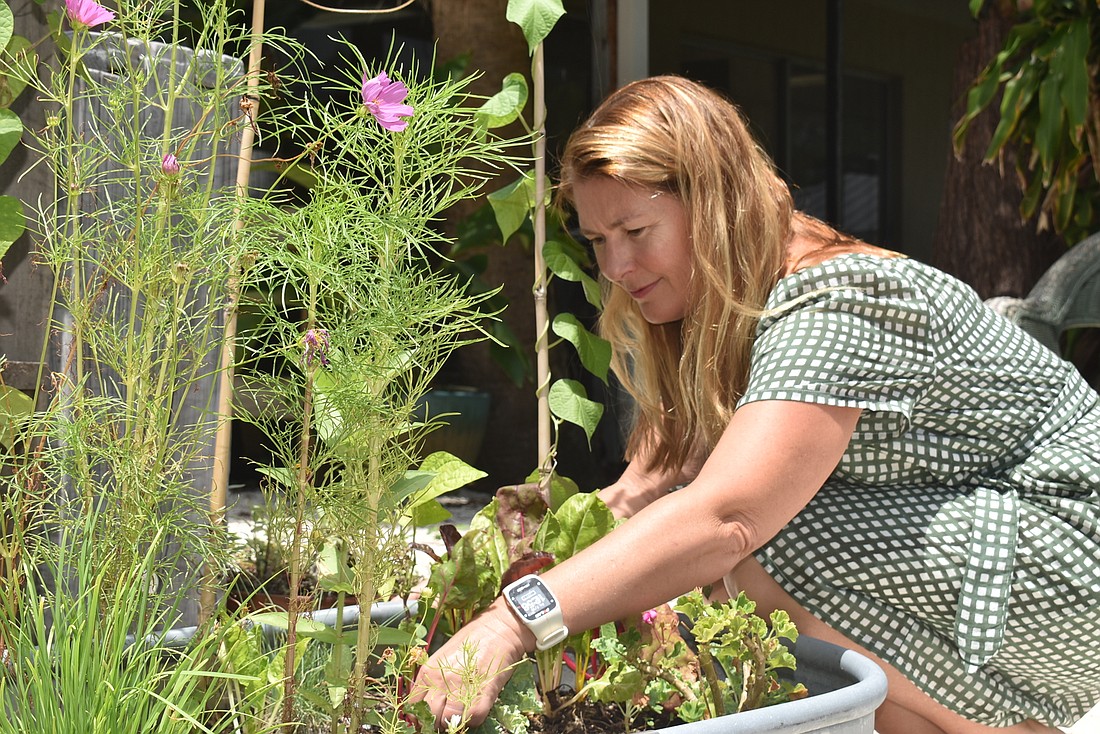- July 13, 2025
-
-
Loading

Loading

During a year when everyone was supposed to be inside as much as possible, some brought nature to their own backyards or apartments. Not unlike the victory gardens of World War II, pandemic gardens sprouted up everywhere. A survey from Axiom Marketing found that half who did it picked up the healthy hobby to relieve stress and get some fresh air, and it's becoming more well known that spending time in a green space relieves tension and symptoms of depression.
“I think we’re always going to feel better when we’re more connected to nature,” lifelong gardener and Driftwood Beach Home and Garden owner Heather Rippy said. “I have always gardened. … I think it used to be the thing that everybody did, and I just think it’s a really healthy thing to do.”
Rippy has grown most of the produce section in the past, from strawberries and watermelons to pumpkins, herbs and greens. This year, she focused on her tomatoes, but her two daughters love when the family grows green beans.
“I love that you’ll never know everything, and there’s always something to learn,” Rippy said. "I think it’s an incredible experience watching things grow and caring for things and to just be able to start with a tiny seed and make it into something that feeds your family.”
There are a few rules of thumb that apply to most plants in Florida, Rippy said. For the most part, it's best to plant in planters or pots because the sandy soil can make it tricky for edibles to thrive. Nematodes, or eelworms, are another Floridian problem. They're parasitic and chomp through the root and stem of plants, so keep your plant babies out of the ground. Any pot you put a plant in will need drainage so the roots don't rot, too.
"No gardener knows everything," Rippy said. "You're always learning."
Some herbs basically grow themselves, such as mint. If you buy a young mint plant, keep its soil damp and give it some sun, it will grow like crazy. Herbs do very well in pots about 6 inches wide and can grow all year round. Another easy grower is rosemary, and Rippy said that it actually does plenty well in the sandy Floridian soil. Take care not to overwater this, though — keep it to once a week at most.
These are perfect for the impatient grower, Rippy said. When you plant a radish seed, you'll have a radish in about a month. Rippy said you should grow all root vegetables, such as carrots, from seeds. Because you'll be eating the root, if you move an already growing plant, it will disturb the growing process. Get these growing in a planter with plenty of drainage, and keep the soil evenly moist but not too wet. Don't water it daily.
Greens including arugula and Swiss chard are good to plant from seeds in September, Rippy said. They don't like heat once their leaves are growing, but they need heat to sprout. Arugula is easy and sprouts quickly. Plant about 10 seeds in a raised bed with a mix of soil and compost, and water frequently. Once the top inch of soil feels dry, give it a hefty pour. Leafy greens (as opposed to head lettuce) are great because they're "cut and come again" plants, meaning you can snip leaves from a couple plants and leave some for your next salad.
This vine can be a little tough to get started and fruited, but it's well worth it, Rippy said. It loves water and needs a pot about a foot deep. Put some sticks in the pot to act as a trellis, and gently tie the plants to them as they grow. Harvest your cucumbers early and often.
Tomatoes can be a little more tricky, but Rippy said that nothing tastes better than a homegrown tomato. She does hers every year and starts them from seeds. With a little patience, they're doable. Plant the seeds in a pot, and give them about six hours of full sun a day. They need about 1-2 inches of water per week; just check if the soil is dry about an inch deep, and give them a drink if it is.
Rippy often doesn't bother with cauliflower because it can be frustrating. However, if you want to give it a try, first arm yourself with lots of patience and the knowledge that it's OK to fail in the garden. Start from seeds as soon as possible because they need heat to sprout. Space your seeds about a foot to 18 inches apart and in moist soil. Once they've sprouted, give them a good soak once a week. Harvest before the flower buds open.